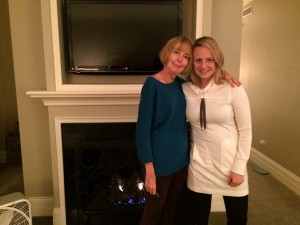Any writer or storyteller will kill or maim for a good lead. You know, the kind of intro that socks you in the face or gut and leaves you begging to know what Paul Harvey called the rest of the story.
Well, my friend Betsy’s 90-year-old mother recently had that kind of lead.
“I haven’t been myself,” she told Betsy over the phone, “since I found that dead body in the swimming pool.”
You see? Doesn’t that intro leave you pleading to know more?
Anyway, my own lead isn’t quite that riveting, but I like to think it packs a bit of a punch. Namely:
I’ve been worried about myself ever since Joe Biden came to town.
Feel your interest piqued already? I thought so!
Well, it so happens I was in a hotel bar a couple of weeks ago and —
Reader #1: Hey, wait a minute! What about Betsy’s mother?
Me: Huh?
Reader #2: Betsy’s mother! We want to know what happened to her. You brought up the topic, then dropped it like a slippery hors d’oeuvre. Did she really find a dead body in a swimming pool?
Me (a bit grudgingly): Well, yes, she did. But let’s get back to my story. There I was, in a hotel bar, and Joe Biden —
Reader #3: Hold it there, sister. First, you need to tell Betsy’s mother’s story — the whole thing, got it? Then, after we’ve heard every bloody detail, you can tell your own story. (Which, frankly, doesn’t sound that interesting, but you’re always pretty slow at getting to the point.)
Me: OK, OK. Stop ganging up on me.
Reader #4: Stop stalling. Spill it, toots.
Me (spoken with heavy sarcasm inappropriate for anyone over the age of 13): If you have to know, Betsy’s mother was swimming at a gym and noticed something in the water. It was a body. The paramedics came, but they couldn’t revive the guy, who was in his 60s, and —
Reader #1: Was it foul play?
Me (sulkily): No. It was a heart attack.
Reader #3: Wow! That’s fascinating. I’ve never even found a dead bug in a swimming pool.
Reader #4: Me, neither. Nothing interesting ever happens to me.
Reader #2 (sighing): I know exactly what you mean.
Me: Hello! Remember me? Can I have my blog back now?
Reader #5: Yeah. I guess. What were you talking about?
Me: Joe Biden. I saw him one night and —
Reader #3: Was he dead or something?
Me: No! Of course not! It’s just that I —
Reader #2: Nobody died? You didn’t even have to call the paramedics?
Me: No, but I —
Reader #3: Is there a point to this story?
Me: Well, yeah, kind of. It’s about me being a celebrity stalker with Joe Biden. Then, I saw Jimmie Dale Gilmore at a dinner and I said, “I love you!” even though I’d never met him and —
Reader #1: You were going to write about that? Really? Everybody loves Jimmie Dale Gilmore. Of course you said that to him!
Me: Well, I was going to flesh it out and make it funny —
Reader #2: Uh-huh. I’m sure you were.
Reader #4: By the way — Betsy’s mother has such an interesting life. Do you think she has a blog?
(Copyright 2014 by Ruth Pennebaker)
Read Musing About Tattoos

















